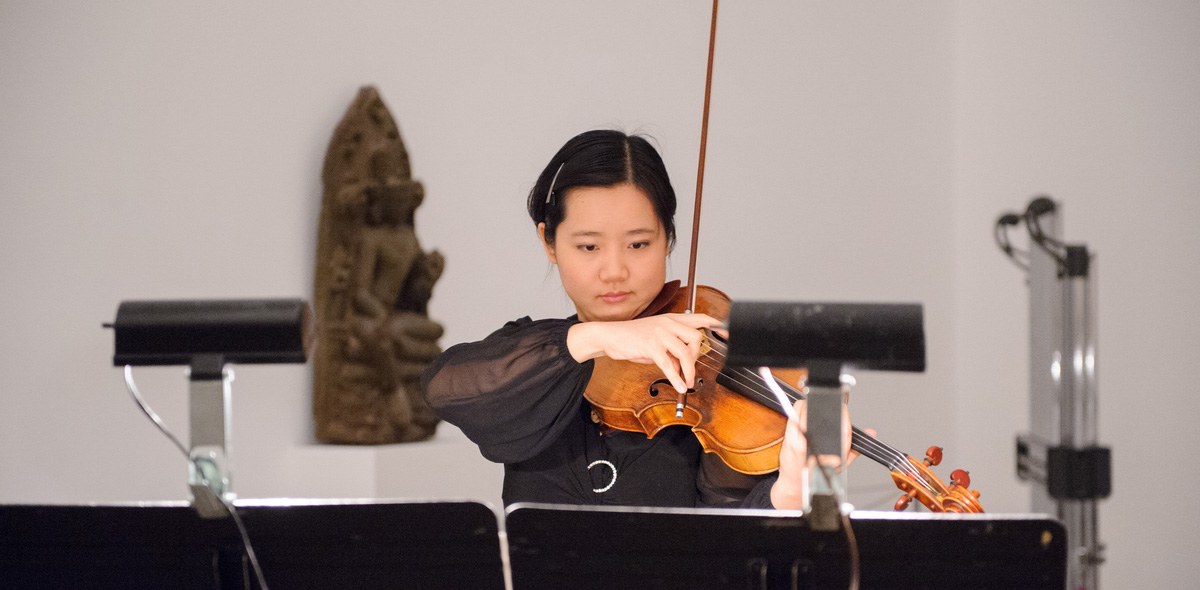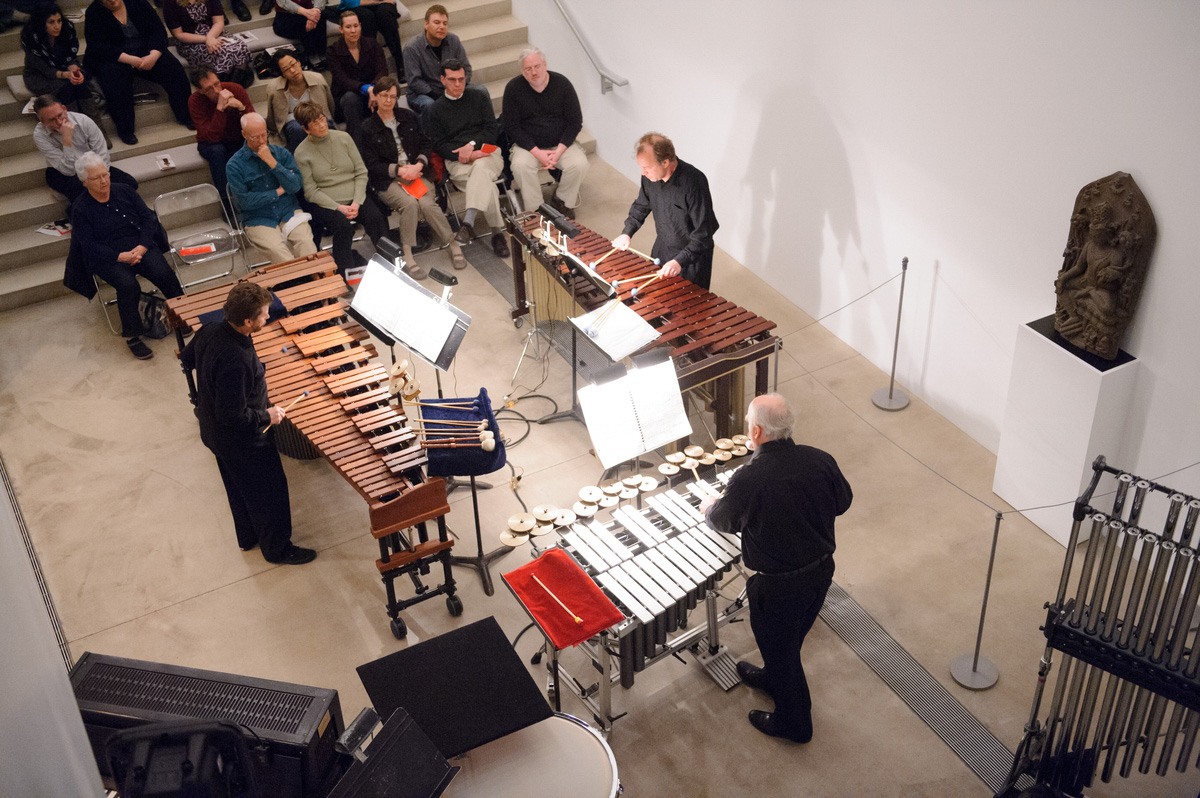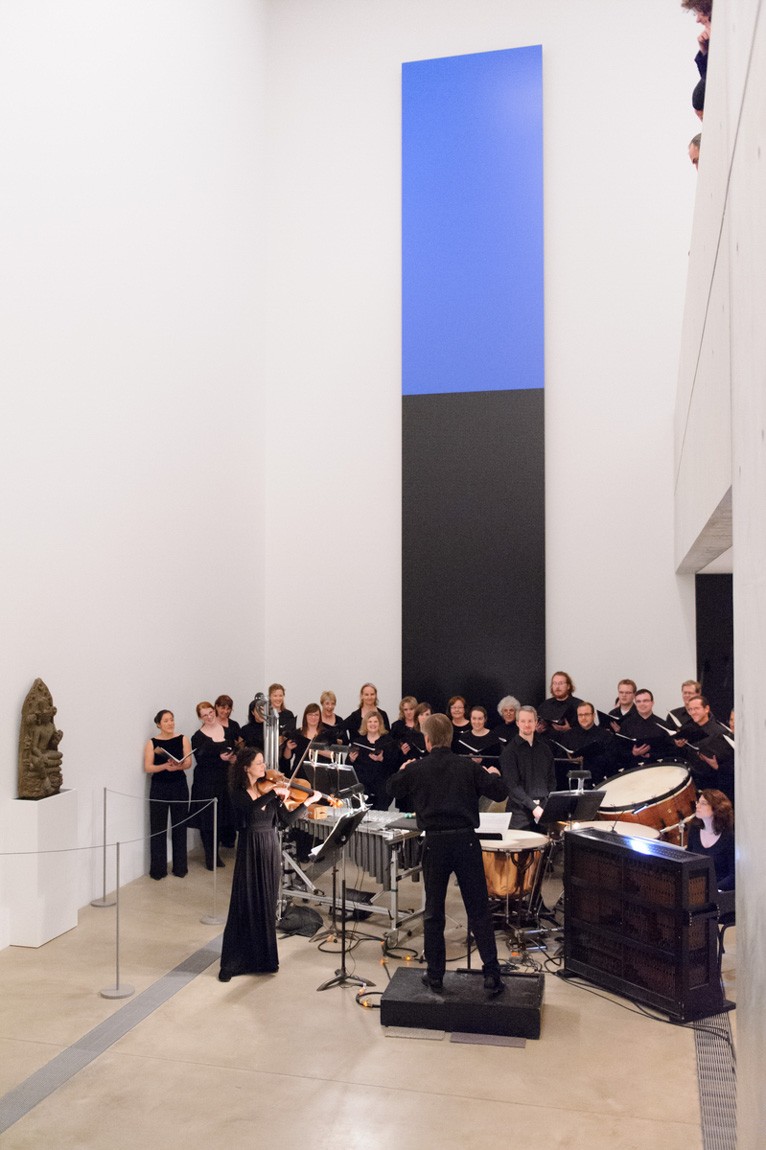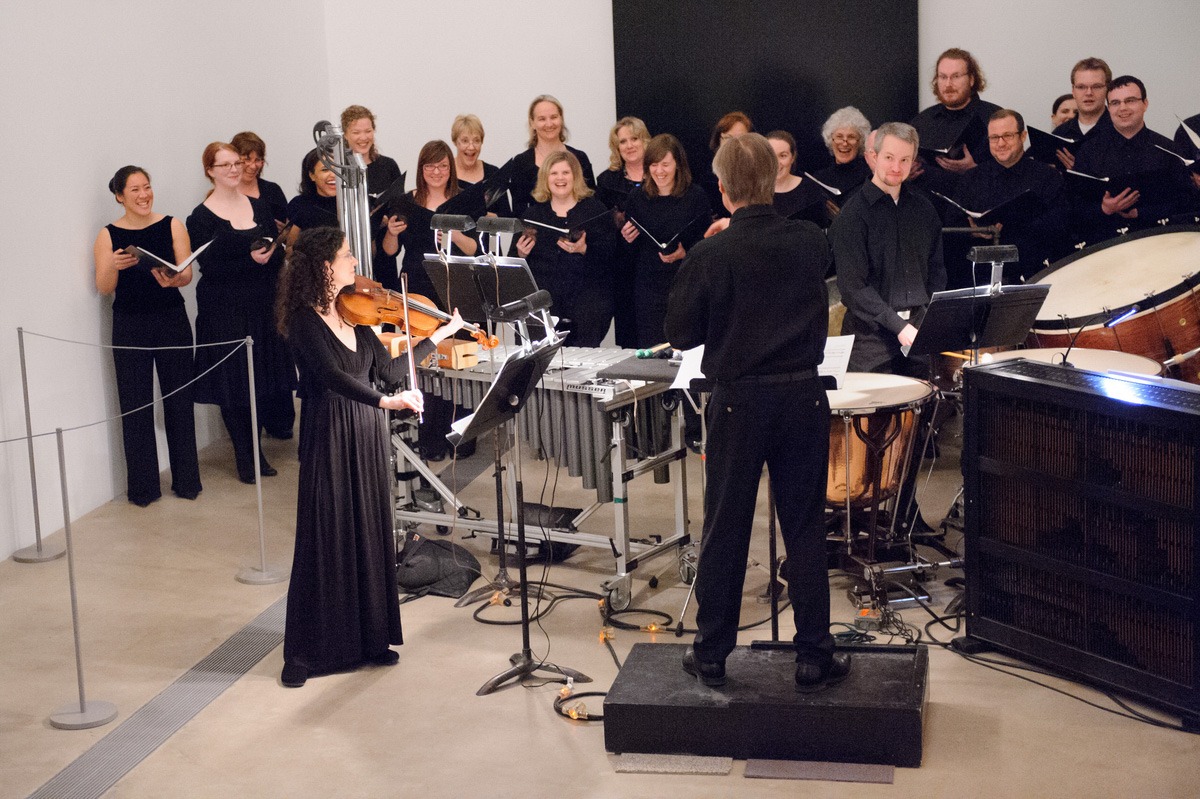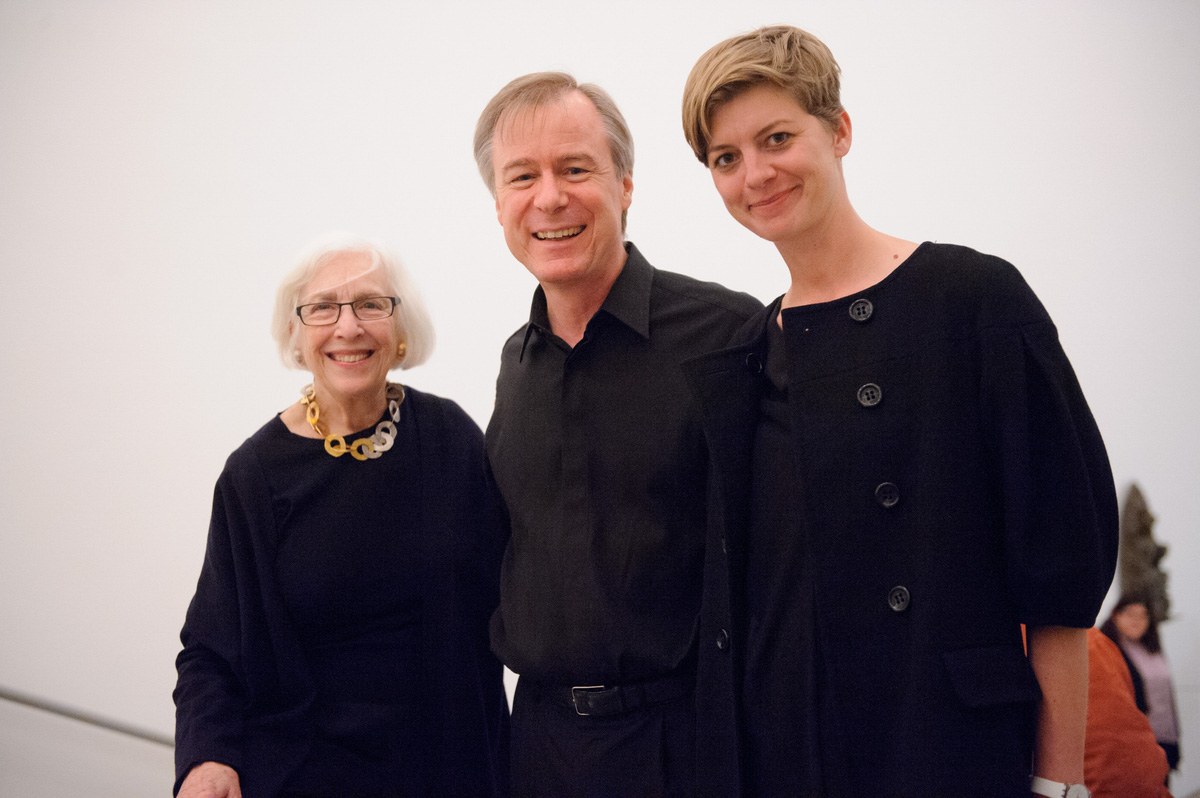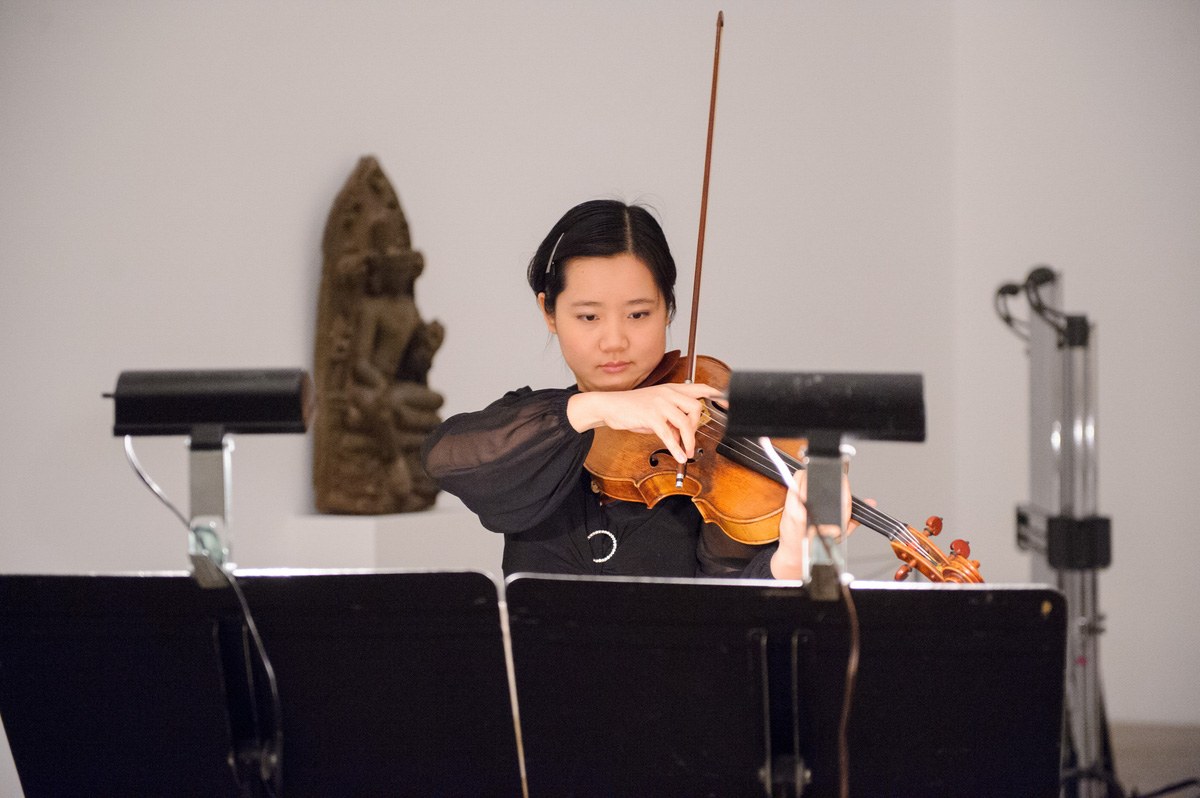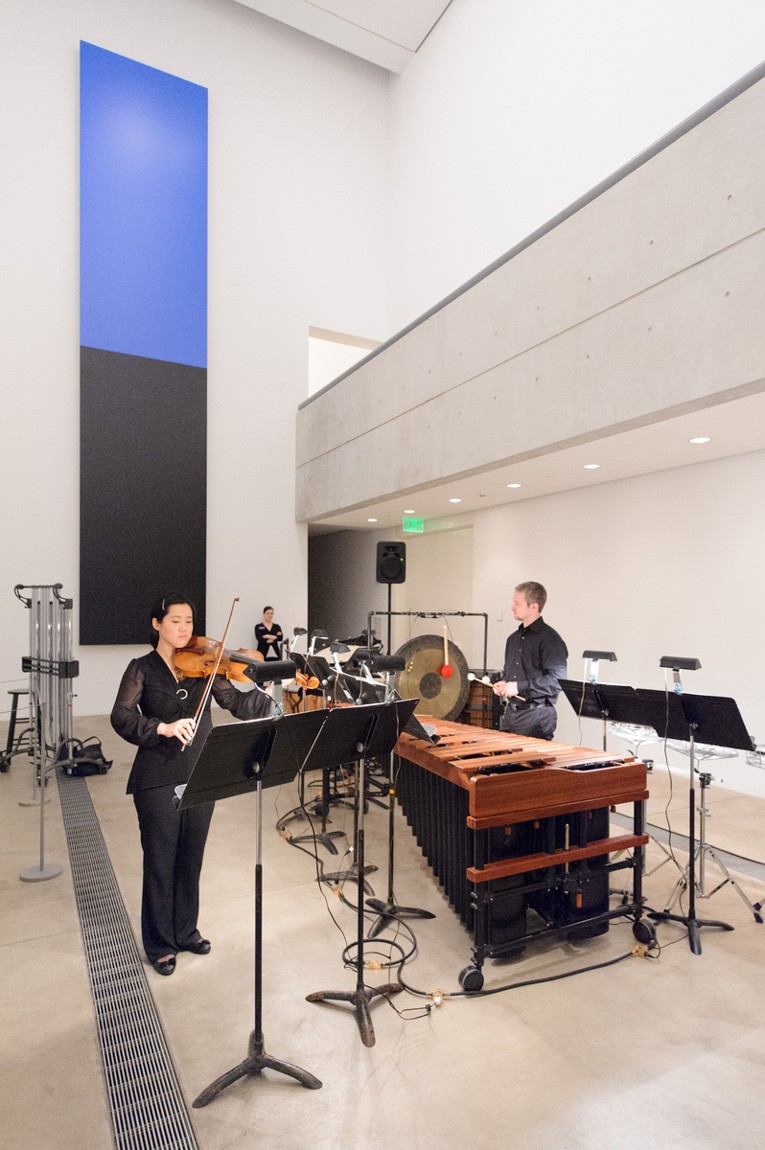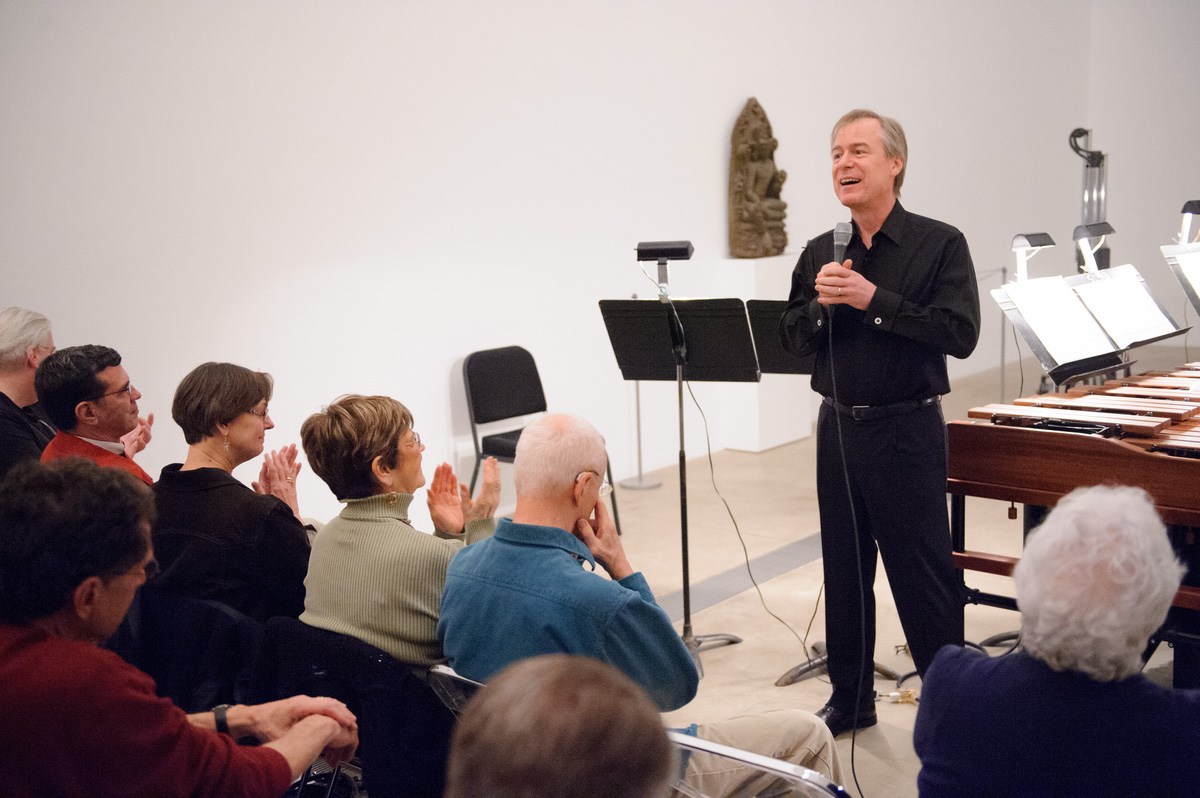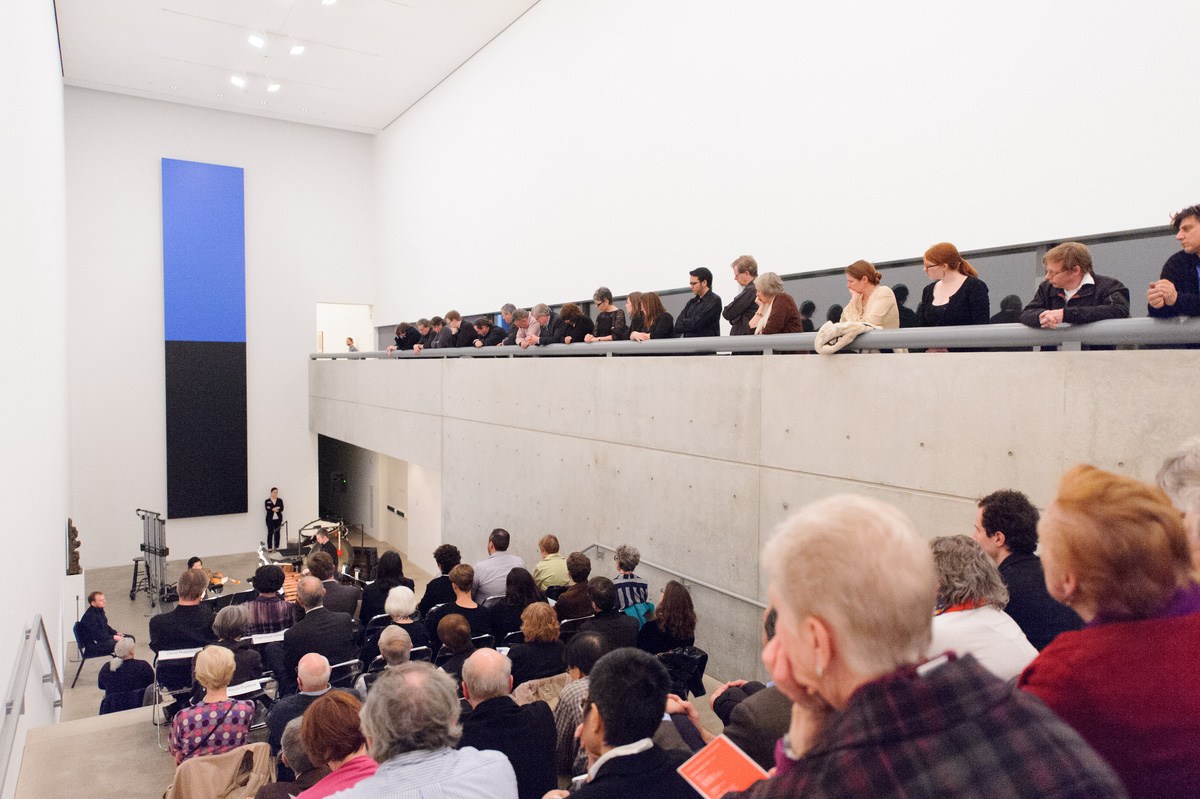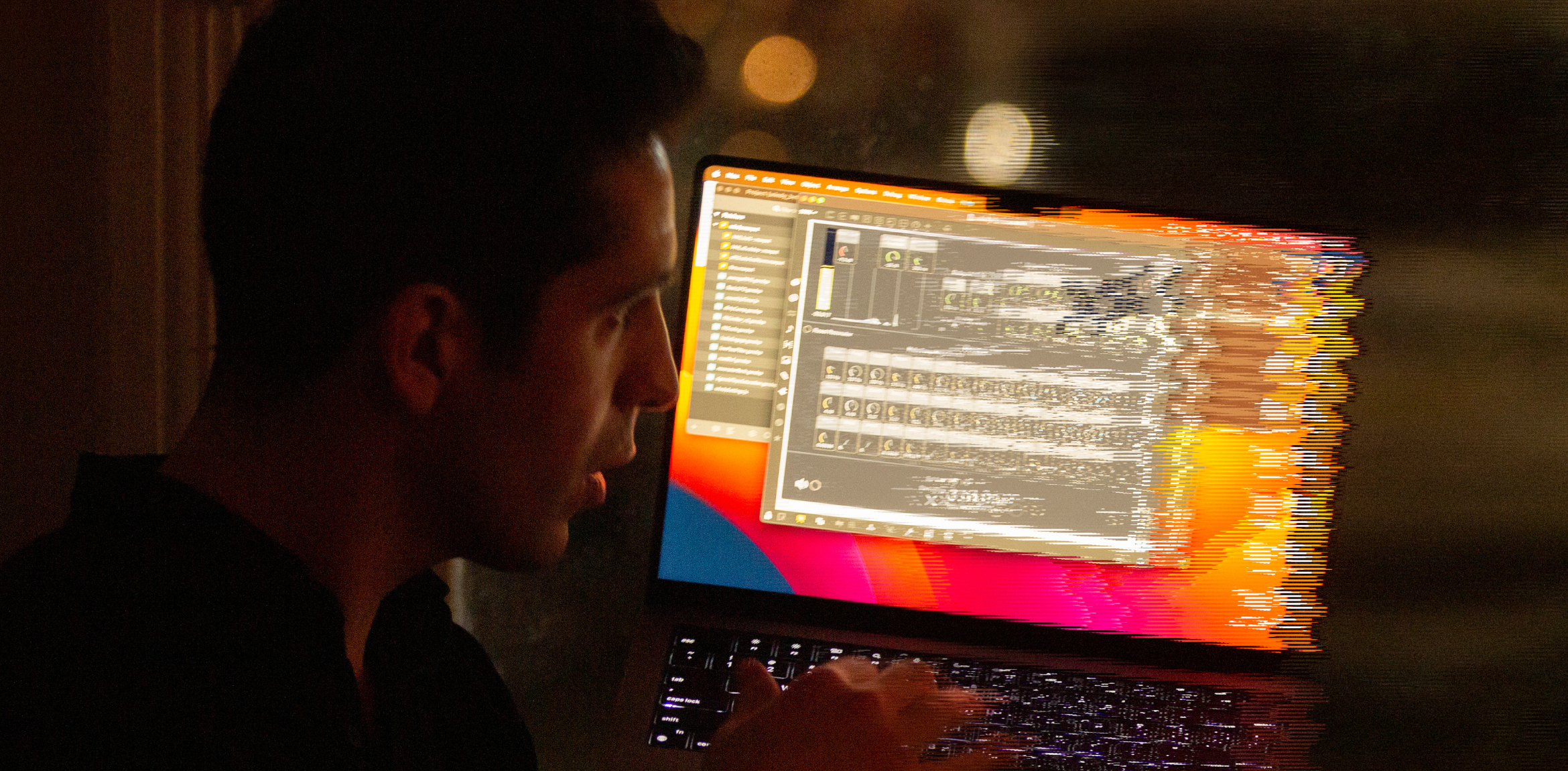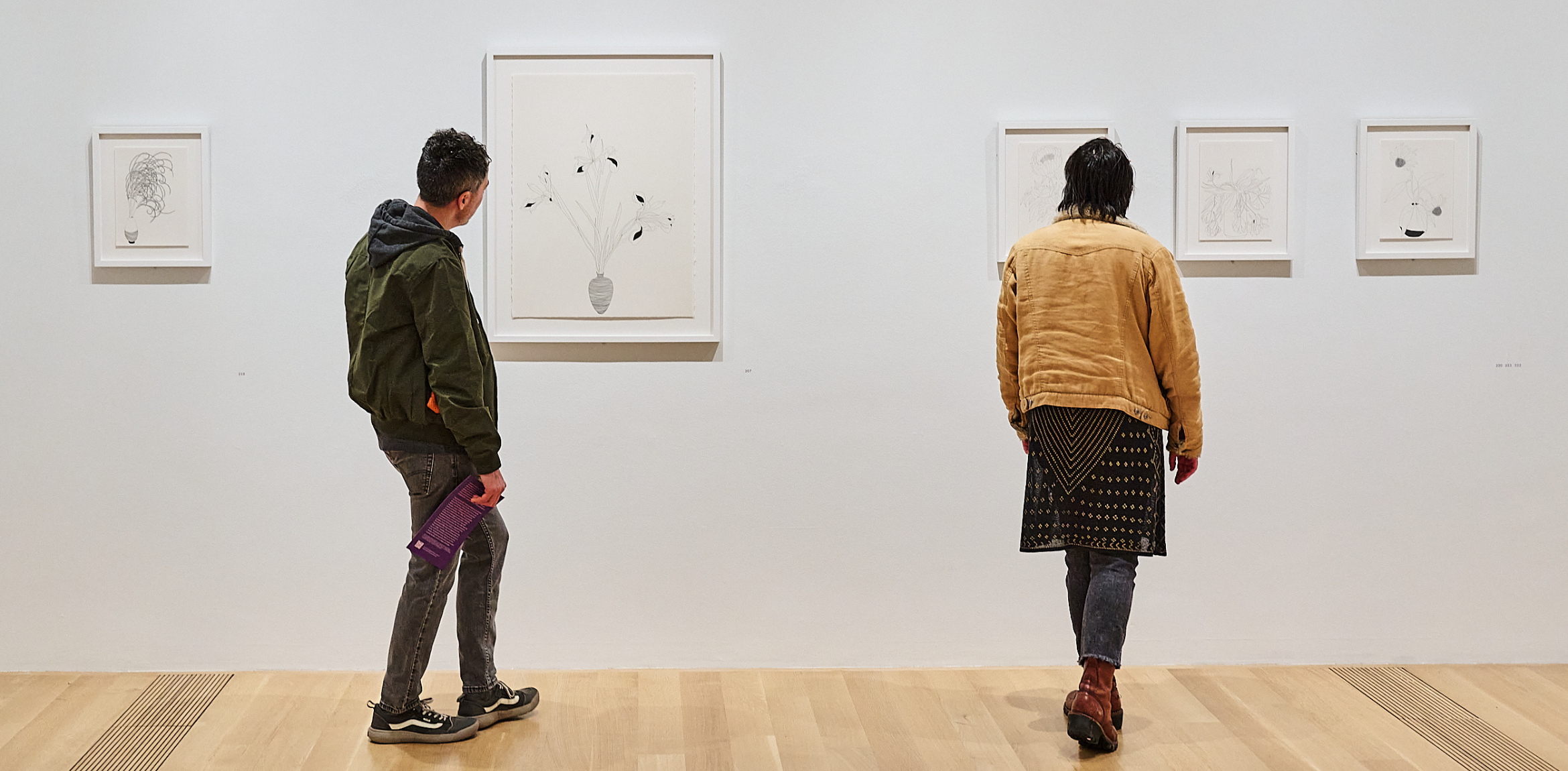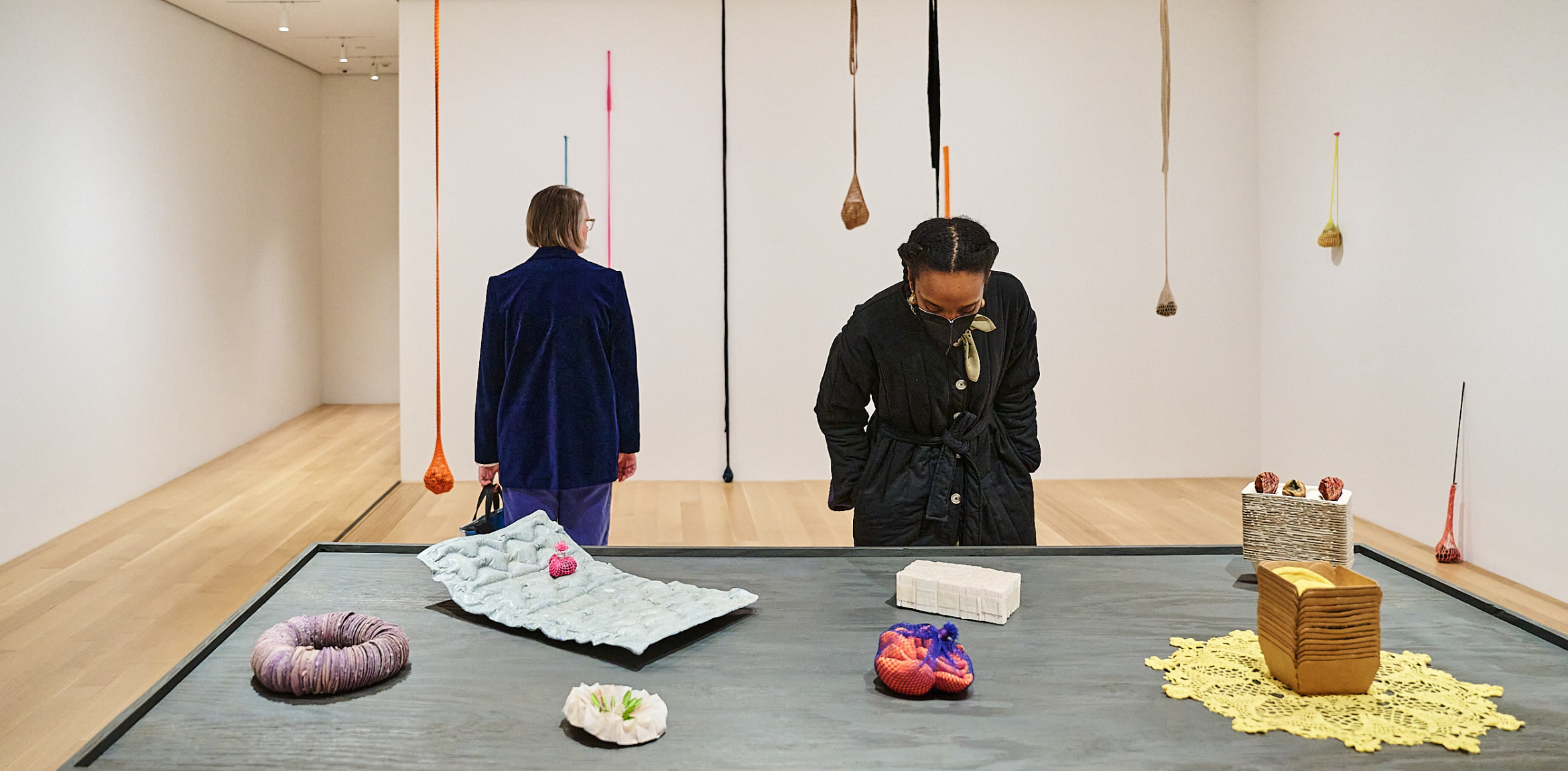This festival celebrated the Pulitzer’s ambitious collaboration with the St. Louis Symphony, who have held concerts in the Pulitzer’s building since 2002. Upon realizing the dynamic acoustics of Tadao Ando’s architecture, the Pulitzer invited the Symphony to perform contemporary and experimental works that could only be realized within an unconventional space outside of their permanent home at Powell Hall in Grand Center. Organized by David Robertson, the Music Director of the St. Louis Symphony, each concert in Retrospectives and Innovations paired at least one work previously performed at the Pulitzer with a work that was entirely new to the galleries. In this way, the rich history of the collaboration found a counterpoint in a sense of future things to come.
Retrospectives and Innovations was comprised of three concerts of chamber music played by members of the St. Louis Symphony, as well as a performance by the cutting-edge, Brooklyn-Based quartet Sō Percussion. Given the emphasis on modern and contemporary symphonic works in the ongoing concert series, the festival’s music program consisted of works composed within the last forty years.
Among those works that had been heard at the Pulitzer in the past, Robertson selected George Crumb’s Black Angels: Thirteen Images from the Dark Land (1970), originally performed at the Pulitzer during the exhibition Portrait/Homage/Embodiment (2006); Steve Reich’s Four Organs (1970), performed during Dan Flavin: Constructed Light (2008); and Franco Donatoni’s La Souris san sourire (1988), performed during stylus (2010). Of the pieces which were being presented at the Pulitzer for the first time, highlights included Frederic Rzewski’s The People United Will Never Be Divided (1975), performed by St. Louis Symphony pianist Peter Henderson; Unsuk Chin’s Fantasie mécanique (1994, rev. 1997); and David Lang’s the so-called laws of nature (2002), performed by Sō Percussion.
